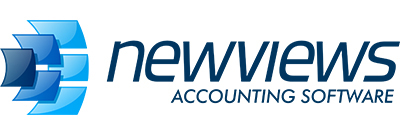-
AuthorPosts
-
January 29, 2014 at 2:46 pm #11994
MSchappler
ModeratorReleased – December 20, 2013
What’s New
January 2014 Payroll Update
Includes Canadian January 1, 2014 tax calculation update.All Canadian payroll users will require this version to process payroll after January 1st, 2014.
Includes United States January 1, 2014 tax calculation update.
All United States payroll users will require this version to process payroll after January 1st, 2014.
Budgeting Improved
Typing budget amounts into account (blue) table cells was, prior to this version, limited to the tag “budget”. This version will accept any tag that begins with the characters “budget”. For example, you could use “budgetb” for a best case scenario and “budgetw” for a worst case scenario.
When you first begin entering amounts for a new budget tag, NewViews will automatically create a new journal with the same name and primary tag as the new budget tag.
Updated Interface
The user interface has been further simplified. Window tabs for branch folders and leaf folders are pruned to display only the relevant tab. An example will help explain this change.
Users would click on the Reports tab when positioned on a leaf report folder, see an empty table of sub-reports and get lost. Only branch report folders have sub-reports and the Reports tab is displayed for this case. Normally, for all leaf report folders, you are interested in the Accounts tab. In short, branch report folders will display the Reports tab but not the Accounts tab. Leaf report folders behave the opposite, displaying the Accounts tab but not the Reports tab. This change has been favorably received by beginner and novice users.
Homing in on Table Rows Improved
The improvement occurs when typing in digits as you home in on the target item. It now feels more natural.
Tables in NewViews are actually sorted using a “dictionary sort” so that numbers will appear in their natural order. For example 9 is less than 10 in a dictionary sort but this would not be the case for a string sort. In a string sort 9 is greater than 10 (because the leading character i.e. 9, is greater than the leading character of 10, i.e. 1). This causes non-intuitive behavior when homing in. The current version homes in as though the table were sorted using a string sort, although in reality the underlying sort is actually a dictionary sort. The result is more intuitive behavior when numbers are involved.
Default installation folder changed to NV2
You can install NewViews where ever you like but by default the final folder name is typically nv. This has been changed to nv2 for new installations to make it more consistent with the folder name of anticipated future products. For example, the default folder name for Non-Profit Housing will be nv2_nph.
Performance Improvements
Tools>Apply Payments and Tools>Apply Deposits, when used with Apply method set to reference and Confirm/edit payment applications set to no will run significantly faster.
Historic Aging views are now processing fewer transactions and will in many cases display amounts faster. Prior to this version transactions as old as ten years were checked. Now only the last three years are checked. Most users do not routinely pay or receive payment for invoices older than three years.
To experience this performance improvement, you have to re-install the view (by issuing the menu command View>Install>Historic Aging. Any views installed prior to this version will still process back ten years.
Finally, the historic aging algorithm will be subject to further review and possible improvement.
Behavior Changes
A partial payment applied against an open invoice dated prior to the User’s Transaction Edit Begin Date is now allowed.
The mouse wheel is now less aggressive. Prior to this version a mouse wheel scroll would move the table by the height of the window. In this version a mouse wheel scroll will move the table by a single row.
Problem / Bug Fixes
Couldn’t log into a set of books because no access object.
A message similar to the one below might appear when logging into a set of books.
access_object_list – “xxx” has no access object.
This could occur if the user attempting to log in had empty rows in their user access table (i.e. not connected to the an object to grant access.) There is no reason to prohibit empty access items so this is a bug and it was fixed in this release.
In some cases, when configuring a report column end date, selecting the date with the pop-up calendar [F3] would cause NewViews to “miss” the last day of the range.
This bug was discovered by users performing Tools>Foreign Currency exchange operations, but it could also have appeared when configuring any account table column, or Multiple Period Analysis, etc.
MICR encoding for Bank of Montreal account numbers has been corrected.
When using Tools>Pay>Account with option field Accounts with reconcile errors set to warning it was possible to get into an “infinite loop” where pressing the option to the warning prompt would simply put the warning prompt up again.
When using Tools>Pay>Account it was not possible to process credit notes in partial increments. For example, if a vendor issued a credit note (i.e. a debit to the vendor account, say to acknowledge a discount for sub-standard product or service) it was not possible to “use” a partial amount of the credit note on one Pay Account run, and use the balance of the credit note on another Pay Account run.
When using Window>Define Columns to create many views of a Ledger or History the name of the selected view was not displayed in the window title bar.
In some instances pressing the [F8] key to restore all windows, or pressing the [F4] key to navigate from a detail window to the companion control window would cause a bug that crashed your workstation.
-
AuthorPosts
- You must be logged in to reply to this topic.
